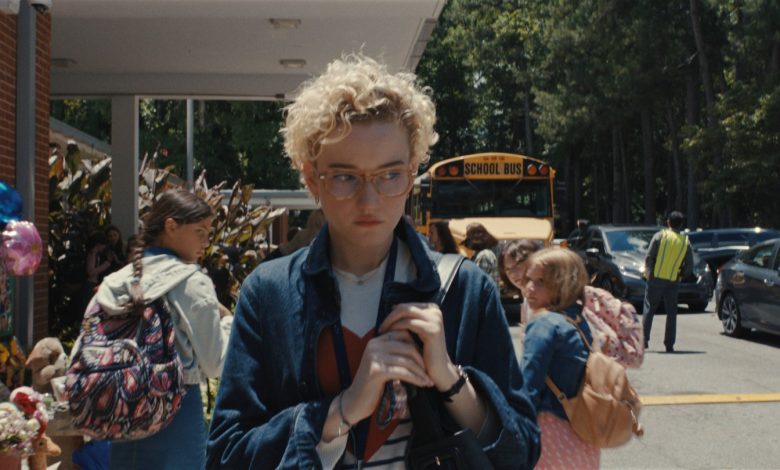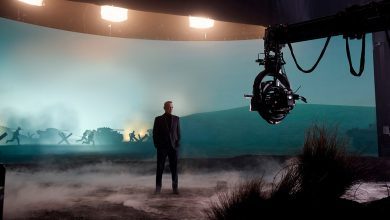Audiences Disagree On Movie’s Meaning

[This story contains spoilers for Weapons.]
Zach Cregger’s Weapons is the latest horror success story in a year when epic studio horror films with large casts and even larger ambitions have thrived, like Sinners, Final Destination: Bloodlines and 28 Years Later. After eclipsing box office projections and sending enthusiastic audiences home with heightened pulses and more than a few chuckles (at least until all the lights go off and only the nightmares remain), Weapons has dominated film-centric conversations on social media for days.
Cregger’s twisty tale features a unique tapestry of intersecting characters played by Julia Garner, Josh Brolin, Alden Ehrenreich, Benedict Wong, Austin Abrams, and Cary Christopher, all caught up in the mysterious disappearance of 17 children.
It’s no surprise the film has led to discussions about its deeper meaning. But the most frustrating point among them is the argument shared by several critics and a wider collection of the audience that the film doesn’t have a deeper meaning and is ultimately about nothing. Rather, the argument goes, audiences are placing meaning into the film because years of so-called elevated horror have trained them to expect —and thus look for — surface-level meaning. It is a claim that I find not only false but anti-analytical because of course Weapons is about something. It’s about so many things that to even limit it to one feels reductive.
It is both a blessing and a curse that we have so much access to the thoughts of artists by way of the internet and social media. On the one hand, it makes the intentions of an artist harder to misconstrue. On the other hand, it has made us complacent thinkers. Websites and Reddit threads spoon-feed audiences with headlines like “What Does the Ending of This Movie Mean,” and if it’s not that, its journalists writing full summaries of a film’s ending so that folks can lend their voice to the discourse without even needing to have seen the film in question.
As a film-going culture, we’ve lost some of our curiosity in an effort to find homogeneous and simplified answers, when in many cases simple answers aren’t even the priority for most filmmakers.
Cregger spoke recently to The Hollywood Reporter about the inception of Weapons, and he described it as an emotional reaction to the death of his best friend and trying to process that loss. Though Cregger has not named his friend in any of his interviews, those familiar with Cregger’s work agree that he’s talking about Trevor Moore, the beloved comedian, musician, and filmmaker who was a founding member of the comedy troupe The Whitest Kids U’ Know (WKUK), along with Cregger. Weapons was released on Aug. 7, the fourth anniversary of Moore’s death.
Beyond the film’s consideration of loss, it’s also genuinely and intentionally funny. There is character-driven humor and pointed reminders of the absurdity of life that feels like a successor to some of WKUK’s sketch comedy moments.
Going further back into his personal life, Cregger also revealed that the final chapter of the film with Alex (Christopher) and his parents was inspired by his father’s alcoholism, as well as his own. “The idea that this foreign entity comes into your home, and it changes your parent, and you have to deal with this new behavioral pattern that you don’t understand and don’t have the equipment to deal with,” he told THR. Through Cregger’s lens, Weapons is, in part, about loss and alcoholism. He figured out what it was about during the writing process, while still not having answers for everything, like the giant AK-47 that floats above Archer Graff’s (Brolin) house.
Undeniably, Weapons is about something. But it’s also important to emphasize that Cregger’s lens is not the final statement on the film and doesn’t negate other viewpoints.
There is this rush to deny any other readings of the film with common refrains like, “Actually, Cregger said it’s about this,” or “You’re reading too much into it.” While Weapons is clearly personal to Cregger, it’s not a private journal entry. It is public art, something given to audiences so that they may apply their own lens to it.
It’s profoundly silly to argue with folks who say Weapons is about gun violence and gun control, child trafficking, the breakdown of communities, and warring community leaders. Because how often do we look at art as being one thing, or existing solely what the filmmaker says it is? If we did, there would be a lot less writing on the works of Bob Dylan and David Lynch. We’d have to agree with William Friedkin that The Exorcist is not a horror film and deny crucial conversations surrounding AIDS because David Cronenberg said that wasn’t his intention. Intentionality is an interesting road to travel down, but far less interesting when it comes to the staying power of art.
Before I read any interviews or theories on Weapons, I sat with the film and considered how it made me feel and what it made me think about. The most recurring images I conjured were that of Hansel and Gretel and the breadcrumbs leading to the witch’s house. Only in this case, the breadcrumbs were left in vodka bottles, used syringes, and cherry red paint.
For me, Weapons is a fucked-up fairy tale that plays with childhood fears of strangers, old people, wigs, and getting lost, that then finds a way to drag the classic horror archetype of the witch, Aunt Gladys (Amy Madigan) into contemporary times to prey parental fears — fears of your own child being killed, or kidnapped, or vanishing because so many outside forces, the internet, their peers, their teachers, that vie for our children’s attention and have such an inexplicable hold on them that it feels close enough to witchcraft.
The central source of anxiety I found in the dark basement of Weapons was the question of Who is shaping our children and what are they being shaped into? We’ve certainly seen the influence people like Andrew Tate, Jordan Petersen, and Ben Shapiro have had on poisoning young minds, and raising them on tenets of misogyny, racism, greed and self-interest. I’d be hesitant to call what they’re doing anything less than weapons manufacturing meant to harm our society.
My Heat Vision colleague Brian Davids and I discussed a somewhat different take on what Weapons is about. He said, considering the film’s ending, Weapons is about “the younger generation turning the tables on the older generation after suffering the effects of either their trauma or the trauma they create by upholding harmful systems and legislations.” Essentially, Aunt Gladys serves as a representative of that older generation, feeding off the young to stay in power.
In the children’s final acts of defiance, they tear Gladys limb from bloody limb, effectively ending her reign of terror and freeing themselves for what Davids ultimately refers to as an anti-generational trauma film, a concept that I believe is supported by the film’s final lines, “some of them even started talking again this year,” suggesting that they’re able to heal from their experience.
In some ways, Weapons works as the opposite of Longlegs, which was concerned with how parents often hide things from their children, only for those children to be traumatized years later when they discover these hidden secrets, and then later pass that trauma onto their children in an unending cycle. Weapons seems to break such cycles, leaving no more devils hiding in basements or upstairs bedrooms playing with dolls or ribbons of hair.
In an interview with The Playlist Cregger said, “I wasn’t trying to comment on or even tap into collective societal tragedies… wasn’t thinking, ‘Oh, America,’ at all.’ Yet, for those who see America in Weapons, as I do, as Brian Davids does, and countless others do, they aren’t wrong.
Going back to that THR interview, Cregger dropped this nugget of truth: “it’s not really my business what people make of the movie. I have nothing to say about it, because the movies should speak for itself, and if I have to comment on what people should get from it, then I’ve failed as a filmmaker.”
In seems to me that many of us are concerned about beating movies, solving them before others and then being afraid to get the “what was it really about?” question wrong in front of judgmental peers. But ultimately, I believe that’s a disservice to film analysis, and to the films themselves. We’ve weaponized the idea of being right or wrong about movies, and it’s a boring state to be in. There’s no harm done in taking an educated analytical swing in good-faith, because every piece of art is about something, many things, and that’s what keeps art alive.
Source: Hollywoodreporter
HiCelebNews online magazine publishes interesting content every day in the movies section of the entertainment category. Follow us to read the latest news.
Related Posts
- Sean “Diddy” Combs Doubles Defamation Damages, Demands $100M in Fresh Legal Filing
- Netflix’s ‘With Love, Meghan’ Season 2 Trailer Shows a Humbler Meghan Markle
- Kim Taylor-Coleman Elected President of Film Academy Foundation’s Board
- ‘The Studio’: Seth Rogen on Why Record Emmy Noms Might Make His Life Easier and Adding Sarah Polley to Next Season’s Writers Room
- ‘Upload’ Promises One Final Fight to Shutdown Evil in Trailer for Finale Event





